



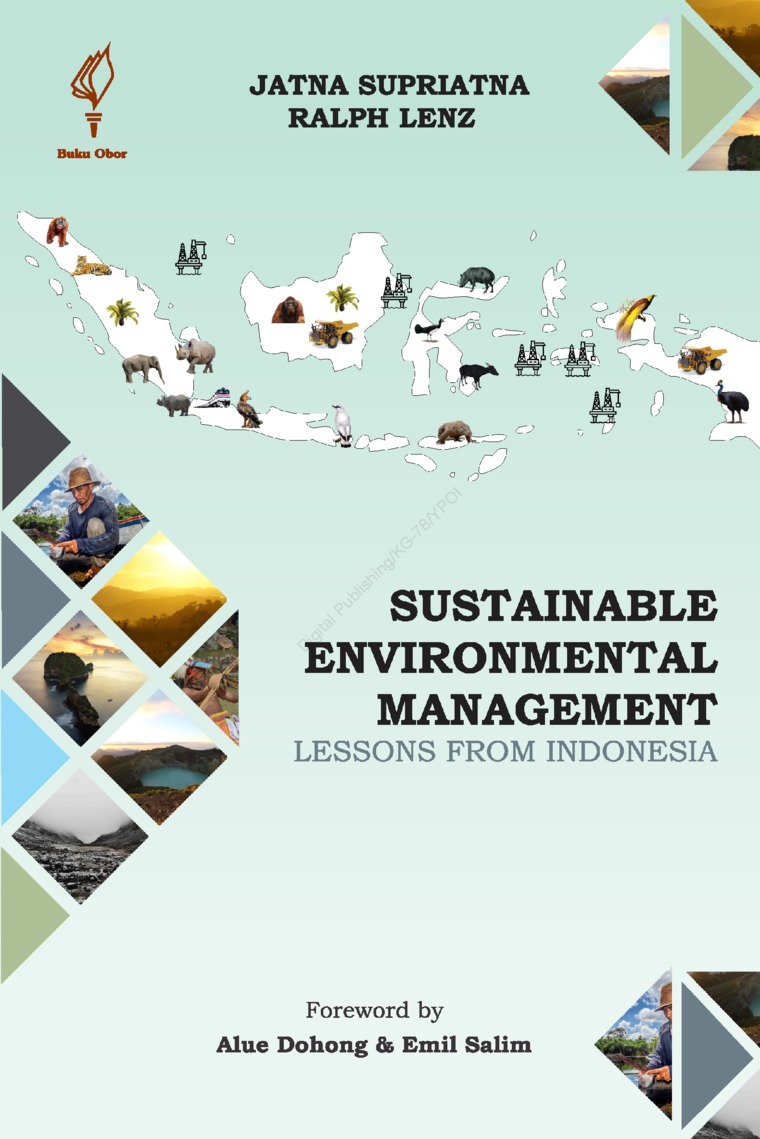

Sustainable environmental management : lessons from Indonesia
Jatna Supriatna (penulis) ; Lenz, Ralph (penulis) ; Alue Dohong (kata pengantar) ; Emil Salim (kata pengantar)
Tersedia di:
Deskripsi
Indeks ; The climate change threat at present has reached a critical stage. The development of the world today is threatened, as the whole world, including Indonesia, is facing three crisis, namely the economic crisis post COVID-19 Pandemic, energy crisis caused by the war in Ukraine, and lastly the climate crisis. Many world leaders are unaware of the severity of the threat of climate change which has now transformed into a climate crisis. The derivative of the climate crisis will not only contribute to worsening of the economic crisis and energy crisis but will quickly shifted into a biodiversity catastrophe, drinking water scarcity, and the global hunger crisis. In turn, a political crisis might arose in the form of a denial of the government’s authority which was deemed unable to overcome these crises. This bleak picture requires a thorough study and solution that is effective but at the same time reaches sustainability and penetrates the future. We are blessed to read Prof. Jatna and Prof. Lenz’s Masterpiece (Magnus Opus) in the form of a book with more than 600 pages that relate to these problems and crises in a series of meanings. We should salute them for providing a clear and comprehensive picture of the interrelationships between regions, disciplines, and elements, both in terms of origin and the possibility of solving the problem. The presentation is presented comprehensively without letting go of the details and context regarding sustainability and the global picture. I am sure that many people, especially those in a strong position, can benefit and be given references from the essential things presented in this book, the great work of both authors, which I am proud of. Prof. Rachmat Witoelar, Indonesia’s President’s Special Envoy for Climate Change (2015 -2019), and advisor to I-SER UI and CAIPSDCC) The concept of sustainable development is a development concept that ensures the fulfillment of the human needs of the present generation without compromising the ability of future generations to meet their needs. That is, the idea of sustainable development emphasizes the development of technologies that can increase productivity and reduce the level of damage. The concept of sustainable development is an effort to integrate three aspects of life, namely social, economic, and environmental, in a synergistic relationship supported by infrastructure and institutions. This concept is in line with the avoidance of shell game theory, where shell game theory solves the problem by creating another problem. The book written by Prof. Jatna Supriatna and his colleague, Prof. Ralph Lenz, from the United States on environmentally sustainable development in Indonesia is very well written. It suits students, environmental experts, planning bureaucrats, and legislature members. Plus, those who are doing development planning both at home and abroad. Each environmental problem is described in detail and clarity, and the solution options are given so that sound environmental management can be sustainable Prof. Satryo Brodjonegoro, President of Indonesian Academy of Sciences Indonesia is an archipelago country that harbors natural resources. It is among the countries with the most complete and extensive natural resource base, perhaps trailing only Brazil. Still, using natural resources as input for current production processes has increased yearly depletion. With its abundant natural resources, Indonesia should have become a prosperous country from an economic perspective. But yearly rising levels of natural resource depletion in many regions of the country have occurred without an increase in equitable human welfare—those words that I picked up from Prof. Jatna Supriatna and his friend’s book. I support this book’s aim that environmental sustainability is necessary for Indonesia. This book should be read not only by students, Environment NGOs, and lecturers but also decision-makers Dede Djuhana Ph.D, Dean of Faculty of Mathematics and Natural Sciences, Universitas Indonesia
Ulasan
Buku Rekomendasi Lainnya
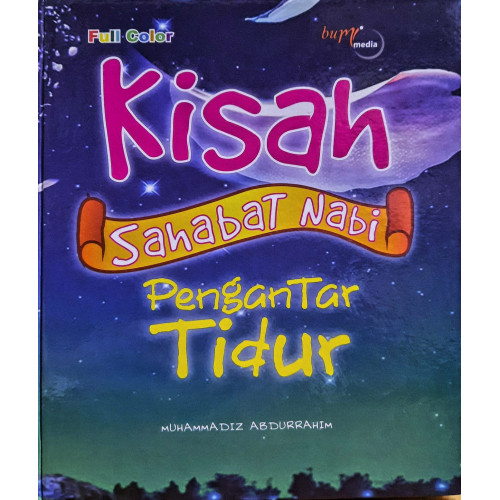
Kisah Sahabat Nabi : Pengantar Tidur
Muhammadiz Abdurrahim ; ABDURRAHMAN

Bangsa yang lalai membangun pendidikan berkarakter Ignatian
SMA Kolese GONZAGA

Solution selling : dari rindu order ke banjir order
GITA, Virja Darma ; GOAN, Oei Eng

tembus cpns 34 kementerian dan 47 lembaga negara plus tni-polri
TIM, penyusun soal

Jejak Sang Pencerah : sebuah novel biografi KH. Ahmad Dahlan pendiri Muhammadiyah
Didik L. Hariri (Pengarang) ; Triana (Pengarang)
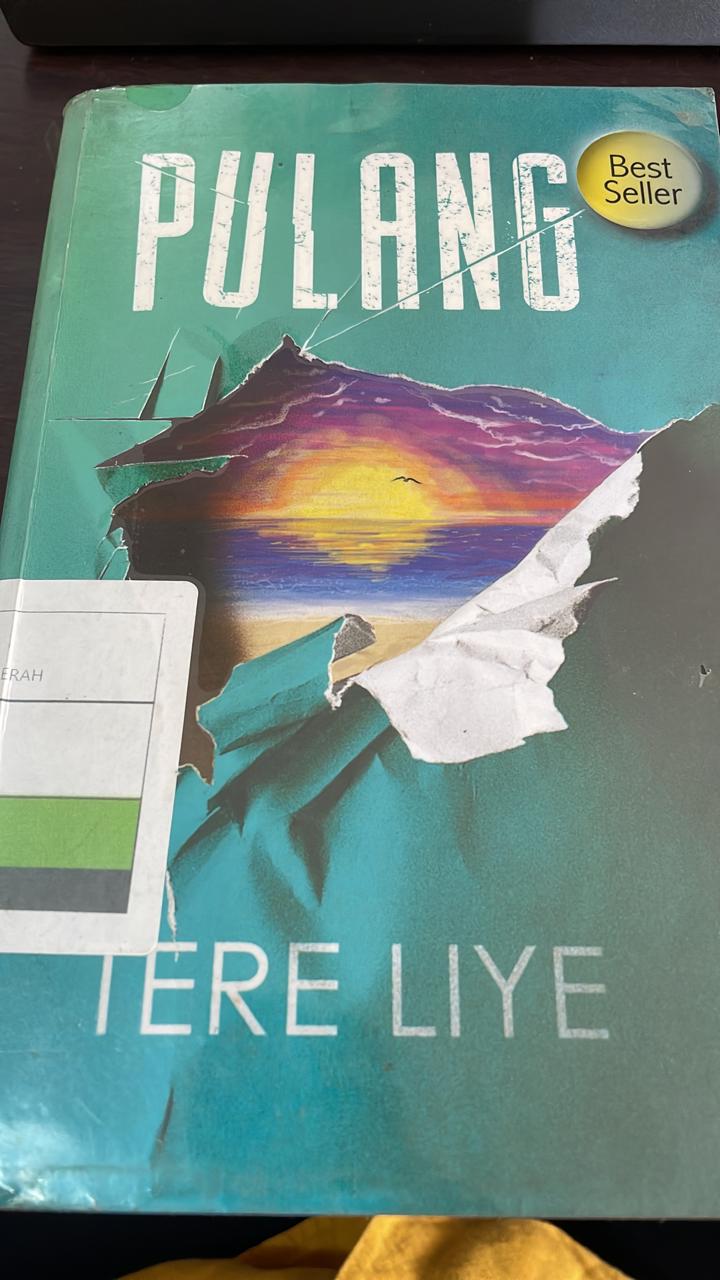
Pulang
Tere Liye (Pengarang)
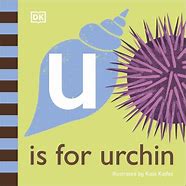
U is for Urchin
Olivia Stanford
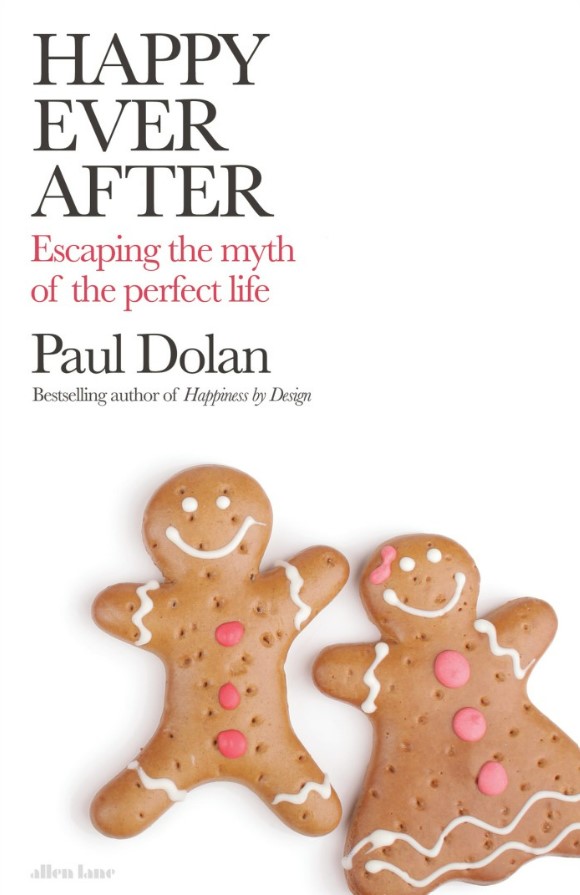
Happy ever after : escaping the myth of the perfect life
Dolan, Paul (Pengarang)

Panduan apresiasi puisi
Sumardi (Pengarang)
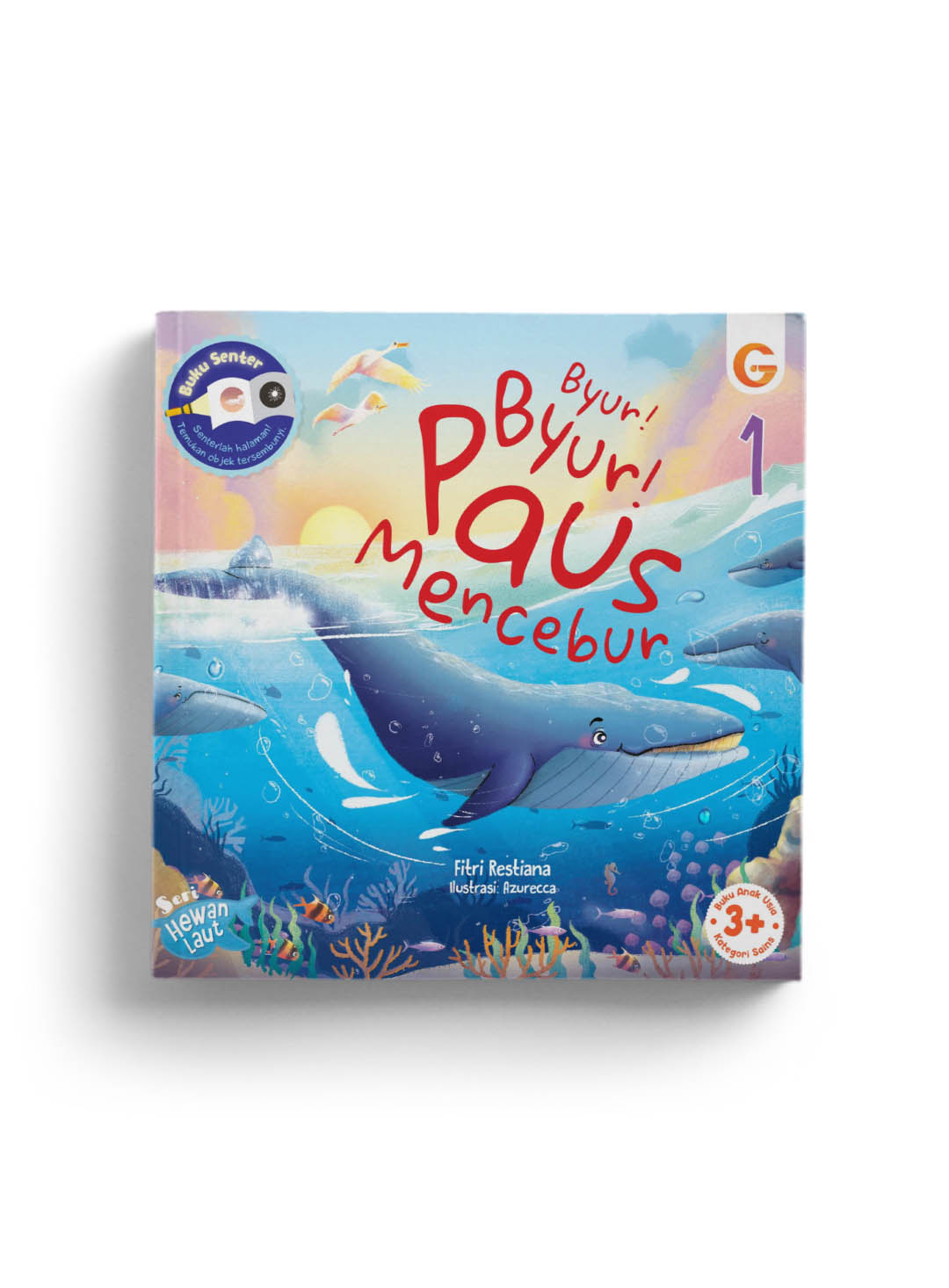
Byur! byur! paus mencebur : Seri hewan laut
Fitri Restiana (Pengarang) ; Azureca (Ilustrator)

Cerita si penidur
Aman Dt. Manjoindo (Pengarang)
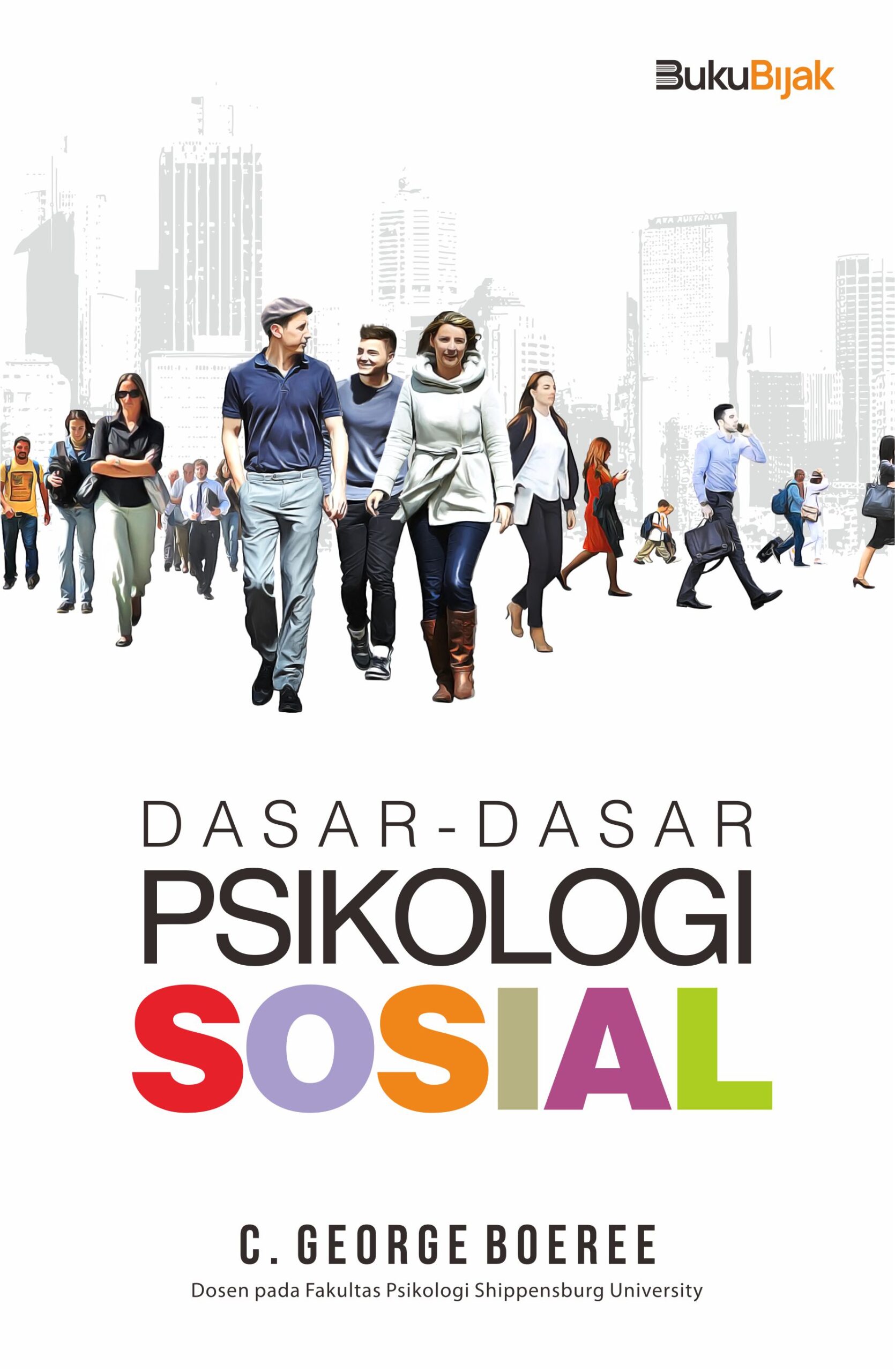
Dasar-dasar psikologi sosial
Boeree, C. George (Pengarang) ; Ivan Taniputera (penerjemah) ; Abdul Qodir Shaleh (editor)

Kecil-kecil punya karya : seoul mates
Hati Bening Asy-Syahiidah (Pengarang) ; Merocake (Ilustrator) ; Asep Vess (Ilustrator) ; Haya Aliya Zaki (Penyunting) ; Vicky Larasita (Penyunting) ; Kulniya Sally (Penyunting)

Mata Belekan : Saat Aku Sakit
Nuril Annissa (Pengarang) ; Danang Suyudi (Ilustrator)


